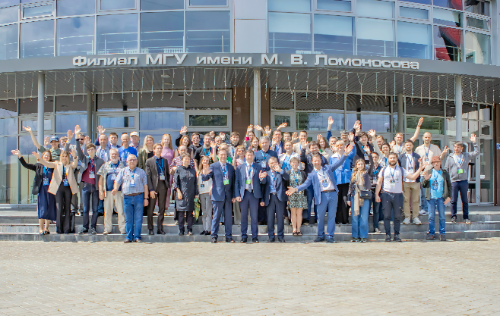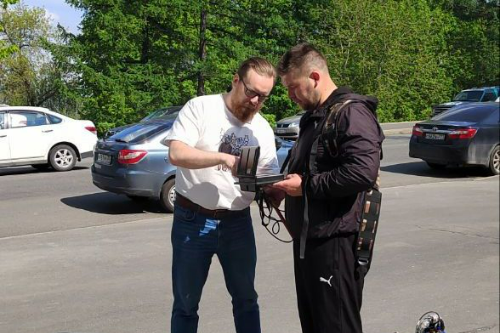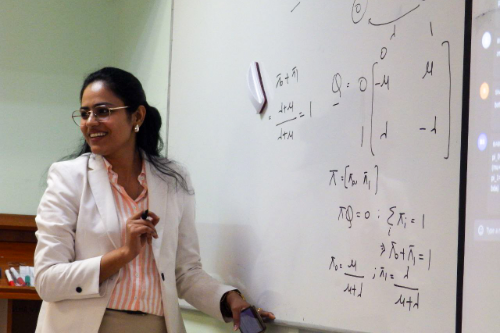American mink is a new species in the fauna of Karelia. Since the time of its arrival, not only did it get anchored in the Karelian land, but it has totally displaced the native European mink. Where its numbers are high, this predator is a serious enemy for the muskrat and waterfowl. Studies in Karelia and its adjacent areas in the Murmansk and Leningrad Regions proved the main source of the new species were fur farms. Typical habitats occupied by the American mink are forest creeks and small rivers with sections that don’t freeze over – rapids and riffles, with relatively flat, but dry and littered banks. Occasional American mink have also been encountered and taken from inside urban communities (Kondopoga, Belomorsk, Sortavala, and even Petrozavodsk).
As a reminder, KarRC RAS, Finnish Environment Institute (SYKE) and Natural Resources Institute Finland (LUKE) are implementing a joint project DIAS. Its objective is to cooperate, and to share information and best practices to control invasive alien species and prevent their spread over Finland and Russian Karelia. If you’ve spotted invasive species, i.e. alien animals or plants that have settled and dispersed in Karelia as a result of human activities, please report your finding to scientists by following the link: https://dias.krc.karelia.ru/feedback
International
News

October 16, 2020
The series of posts on invasive animals in Karelia is continued. This time the focus is on the American mink. The arrival history and features of this species are described by Pyotr Danilov, Leading Researcher at the Zoology Laboratory of the Institute of Biology KaRC RAS.
See also:

September 19, 2025
Researchers from BRICS+ countries network to study human-altered ecosystems
Studies of human-altered ecosystems were the key theme of the international webinar organized by the Karelian Research Centre RAS for scientists from Russia, India, China, and Belarus. Researchers shared expertise on the application of modern approaches and the results of their work, and agreed to create an expert network for further interactions.
Studies of human-altered ecosystems were the key theme of the international webinar organized by the Karelian Research Centre RAS for scientists from Russia, India, China, and Belarus. Researchers shared expertise on the application of modern approaches and the results of their work, and agreed to create an expert network for further interactions.

July 10, 2025
International School “Interaction of Hydrogen Isotopes with Structural Materials” was held at the National Center for Physics and Mathematics in Sarov, Novgorod Region. Karelian scientists gave a lecture and presentations on computational materials science – an efficient tool for rescaling test-sample experimental data to real-life power reactor structures.

June 6, 2025
Study trip to KarRC RAS helps specialist from Vitebsk master new electrical resistivity imaging techniques, with applications in construction
Cooperation of Karelian Research Center RAS with Vitebsk State University continues. On June 5, the University's Master's student Dmitry Lysov completed his practical training course. The construction industry specialist studied the geophysical methods used by researchers at KarRC RAS.
Cooperation of Karelian Research Center RAS with Vitebsk State University continues. On June 5, the University's Master's student Dmitry Lysov completed his practical training course. The construction industry specialist studied the geophysical methods used by researchers at KarRC RAS.

June 5, 2025
Scientists from India and Russia lecture on mathematical modeling of communication systems at IAMR KarRC RAS
Institute of Applied Mathematical Research KarRC RAS is hosting a set of lectures of stochastic modeling of telecommunication systems. Scholars from the Indian Institute of Technology Delhi (IIT-Delhi) are appearing before young scientists from Russia and India as invited professors.
Institute of Applied Mathematical Research KarRC RAS is hosting a set of lectures of stochastic modeling of telecommunication systems. Scholars from the Indian Institute of Technology Delhi (IIT-Delhi) are appearing before young scientists from Russia and India as invited professors.


